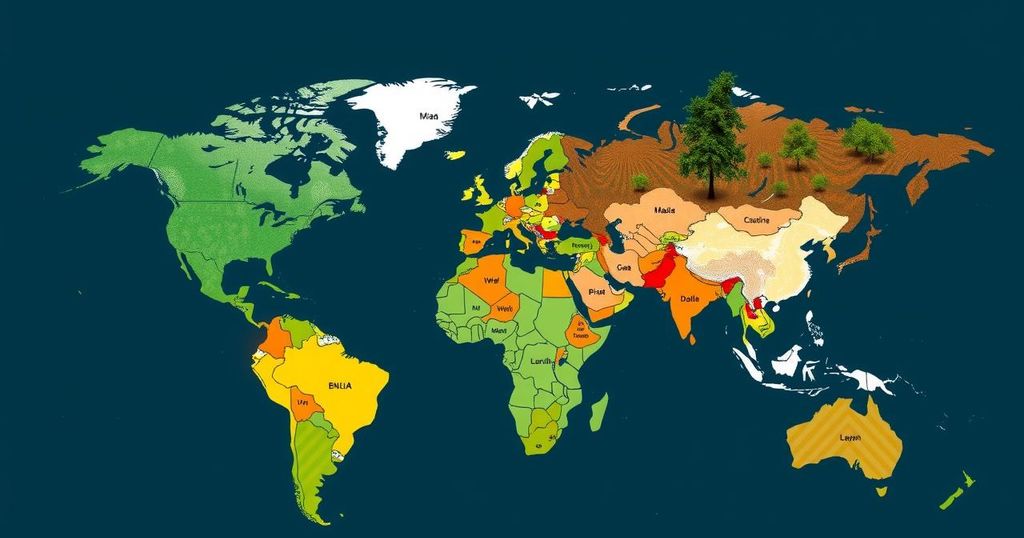Richer nations are beginning to pay poorer countries for climate change damages, exemplified by a $750 payment received by a Malawi farmer following Cyclone Freddy. Despite around $720 million pledged, experts warn it may be insufficient as extreme weather events become more prevalent. Discussions are underway at COP29 to finalize funding mechanisms and responsibilities for climate-induced losses.
In the wake of Cyclone Freddy, which devastated southern Malawi in 2023, a new funding initiative is gaining attention. This initiative provides “loss and damage” compensation for climate-related disasters, with richer nations beginning to offer financial assistance to poorer countries severely impacted by climate change. For instance, Christopher Bingala, a subsistence farmer, received approximately $750 that enabled him to rebuild after losing his home and livestock during the cyclone. Despite the funds pledged thus far—around $720 million from nations such as the United States and European Union—experts caution that this amount will be inadequate to meet the challenges posed by increasingly severe environmental crises. The ongoing COP29 climate summit in Baku, Azerbaijan, serves as a platform to negotiate the specific amounts that high-emission nations owe to developing nations, incorporating this compensation into broader climate finance strategies that could include loans and investments. Ultimately, leaders like Philip Davis, Prime Minister of the Bahamas, stress the need for accountability from wealthier countries for their role in climate change.
The phenomenon of climate change disproportionately impacts low-income nations, which, while contributing minimally to global greenhouse gas emissions, face devastating weather events. Funding to address these “loss and damage” scenarios is essential, as many affected entities lack resources and insurance to recover. The recent initiative to establish a specific fund reflects the urgent need for a structured financial response to climate-induced disasters, which is being discussed in international forums. These discussions are crucial for addressing accountability and facilitating recovery resources for nations severely impacted by climate events.
As climate disasters escalate, the urgent need for effective funding and support mechanisms for impoverished nations is becoming increasingly clear. The disparities in climate responsibility underscore the necessity for wealthier countries to uphold their obligations to assist developing nations through targeted financial initiatives. The implementation of the “loss and damage” compensation fund is a significant step, but successful execution will require ongoing commitment and action from the global community to address the existential threats posed by climate change.
Original Source: www.wosu.org






